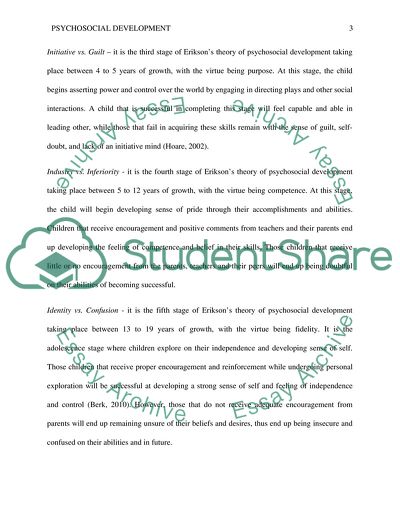Psychosocial Development: Exploring Erickson Assignment. Retrieved from https://studentshare.org/psychology/1686304-psychosocial-development-exploring-erickson
Psychosocial Development: Exploring Erickson Assignment. https://studentshare.org/psychology/1686304-psychosocial-development-exploring-erickson.


